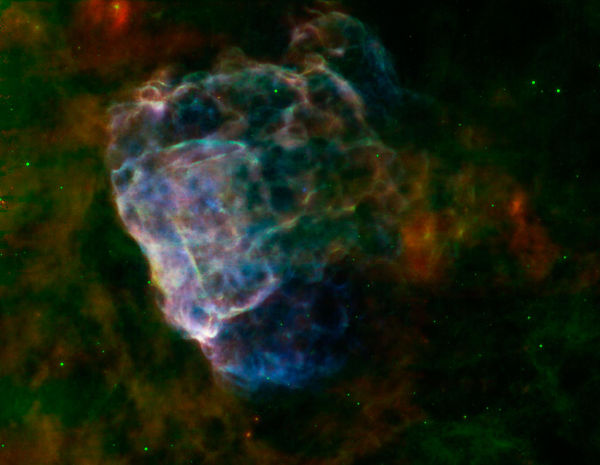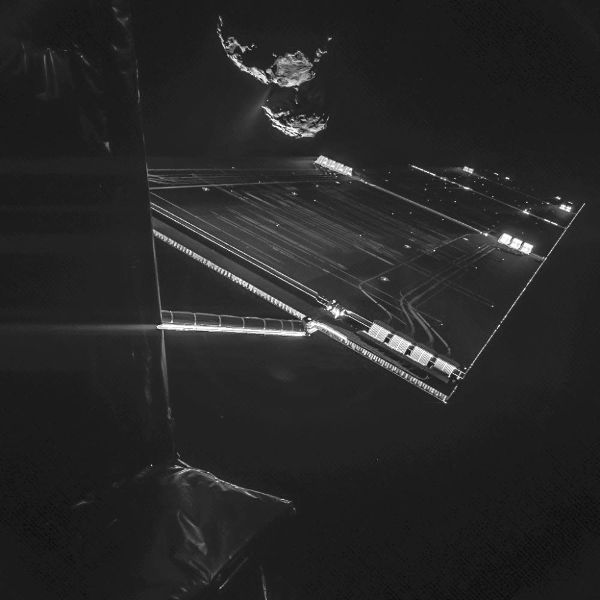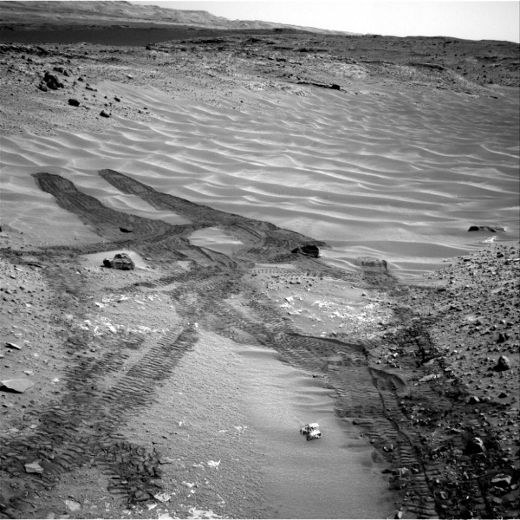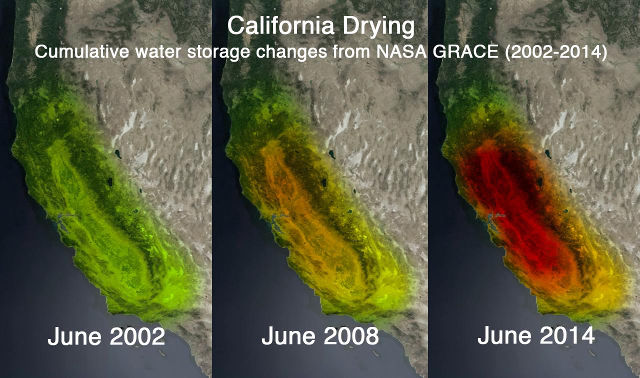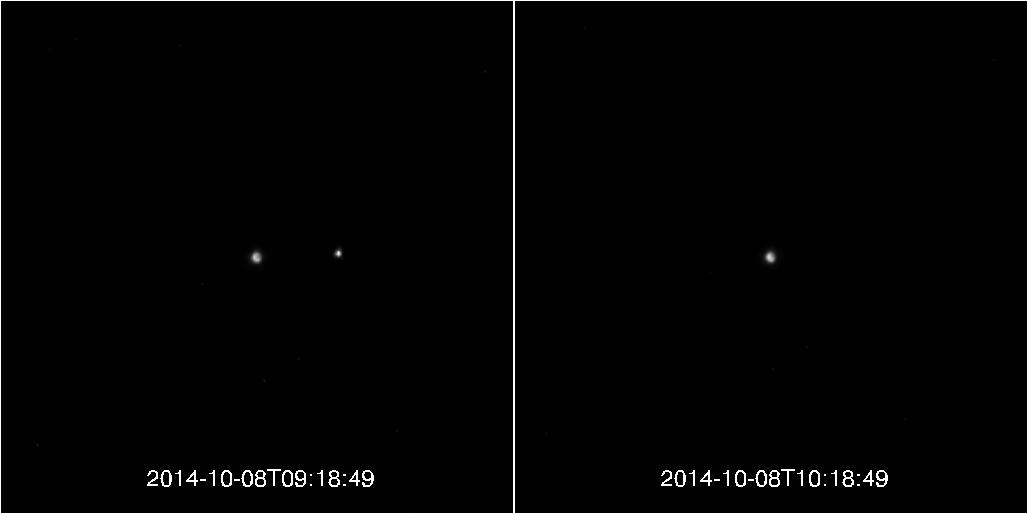
While many of Earth were gazing up on October 8, 2014 to catch the total lunar eclipse, NASA’s Messenger space probe was also watching. It used the on-board narrow angle camera – from its far away station, in orbit of the planet Mercury to capture the eclipse. The picture of the left shows the normal view of the Earth and Moon from Mercury (two very bright points in space about 107 million kilometers away). During the lunar eclipse, the Moon disappears from view on Mercury as it makes its passage through the Earth’s shadow (as seen on the right).
